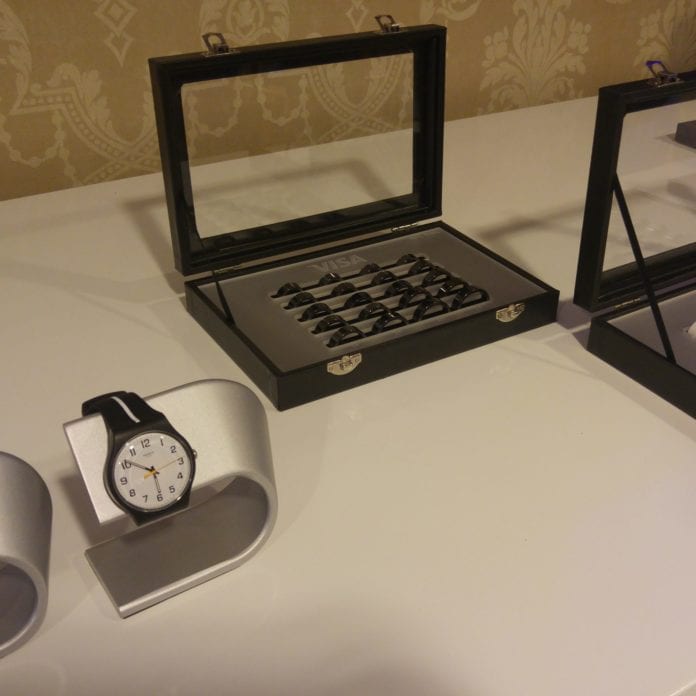RIO DE JANEIRO – Payments using near field communication technology have been a promise for a while, but until now no application has been popular or good enough to replace plastic cards. With about 4,000 points of sale equipped with NFC, Visa is using the Rio de Janeiro Olympics to showcase the use of the short-range wireless connectivity standard to allow visitors and athletes to use rings, bracelets and watches to make purchases by tapping them at any NFC-compatible payment terminal.
“Today we are seeing other form factors emerging, beyond just the credit card, including the watch, the bracelet, the payment ring and the car one day,” said Chris Curtin, chief of brand and innovation marketing officer at Visa. “Visa has been the plastic credit card for the past 50 years, so what we are focusing on is bringing all the same element to a Visa payment experience.” Curtin noted that this is Visa’s move into the booming internet of things.
One of the goals of demonstrating new means of payment is to get the attention of its target customers, particularly banks. Eduardo Coello, Visa’s president for Latin America, said the company worked with financial institutional partners on the NFC project. “They are thinking on deploying it in different ways and to different markets and segments,” he said.
It will likely be a challenge given the cultural barrier as many people are still very attached to their plastic cards and see no reason to change. “People will start by complementing their current payment capabilities with different devices,” Coello said.
Visa has tapped different wearables to test during the Rio Olympics. It has distributed rings backed by a Visa account to athletes the company sponsors. Along with Brazilian bank Bradesco, Visa is also testing an NFC-enabled bracelet. Around 3,000 bracelets were given to key customers, celebrities, athletes and others to be used during the games in the venues and throughout the city. Visa also partnered with Swatch to launch a watch linked to a Visa prepaid card, which works like any NFC-enabled contactless device.
Increasing NFC’s popularity will be a key factor in driving the broader adoption of wearable devices as a form of payment.
Click here for more stories about the 2016 Rio Olympics.
Editor’s note: This story is part of a series focused on the technology deployments that support the Rio Olympics. Travel costs to Rio de Janeiro were provided by Visa.

Rio Olympics: Visa tests NFC-enabled wearables for mobile payments
ABOUT AUTHOR
